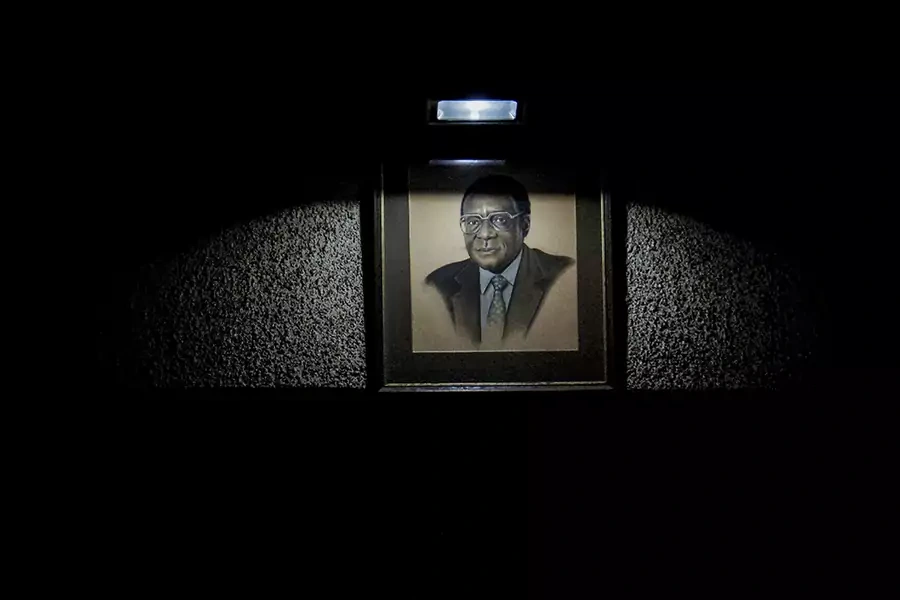Mugabe Holds On

Zimbabwe’s ruling party, the ZANU-PF, has expelled Robert Mugabe and it is demanding that he resign by today or face impeachment. On Sunday in an address to the nation, Mugabe made no mention of stepping down, and referred to chairing the next ZANU-PF convention in a few weeks. Negotiations between the military and Mugabe, supposedly facilitated by South Africa and a Roman Catholic priest, appear to be going nowhere. Meanwhile, Mugabe’s likely successor and former deputy, Emmerson Mnangagwa, has returned from South Africa. On the day of his address over the weekend, there was a huge (by Zimbabwean standards) anti-Mugabe demonstration in Harare.
More details about the coup are emerging, though they do not change the fundamental narrative. The issue was a conflict within the ZANU-PF over the succession of Mugabe, who at 93 is visibly failing. One faction is close to the military and is headed by Mnangagwa. He is called “the Crocodile” and his faction is called “Lacoste,” after the clothing logo that uses the crocodile as its symbol. The other, called G-40, supported Robert Mugabe’s wife, Grace, to be his successor and includes politicians of a younger generation. Its name refers to its members’ age bracket, in contrast to Lacoste, which is dominated by politicians and generals in their 70s. When Mugabe came down on the side of his wife, the stage was set for the coup.
More on:
The definitive moment leading to the coup appears to have been the flight of Mnangagwa, first to Mozambique and then to South Africa, to avoid arrest after Mugabe removed him as vice president. This was apparently accompanied by Mugabe’s attempt to arrest the head of the army, General Constantino Chiwenga, at the Harare airport upon his return from China on November 12. The New York Times reports that Chiwenga had been tipped off about this when his plane landed, and his soldiers at the airport prevented the police from arresting him. The coup then followed on November 13 and 14. On his trip, Chiwenga may have briefed the Chinese of the impending military intervention.
It is becoming clear that the War Veterans Association, a political proxy for the military that enables it to maintain a “non-political” stance, played a major role. Its head, Christopher Mutsvangwa, went to Pretoria and briefed South African intelligence with the goal of persuading the Zuma government not to describe the foreseen military intervention as a coup, reports the New York Times. It looks like he was successful, as no South African official statements have used “coup” to describe the events in Zimbabwe.
What happens next? The ZANU-PF dominates parliament, which is voting to impeach Mugabe either today or very soon. If he is impeached, it is unclear if he would accept the parliament’s decision and go quietly. Would the African Union and Southern African Development Community, which reflect Africa’s strong opposition to military coups, accept the impeachment as legal? Or would they continue to recognize Mugabe as head of state? African opposition to coups has become Mugabe’s strongest card. Another may be the police, with which Mugabe has cultivated a close relationship. A violent confrontation between the army and police could be a disaster. The best solution continues to be a bargain between the army and police in which Mugabe steps down from power, if not necessarily from office.
There are no “white hats” in this drama. Mnangagwa was Mugabe’s enforcer. He directly participated in the 1980s slaughter of Ndebele rivals of Mugabe’s Shona ethnic group, and he is widely feared. Even if Mugabe goes, his regime does not, and there is little evidence that Mnangagwa would be any improvement from the perspective of human rights and the rule of law.
More on:
 Online Store
Online Store